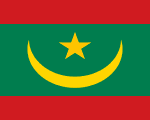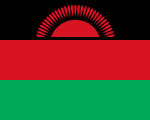About Mali country
Mali, officially the Republic of Mali, is a landlocked country in West Africa. It is the eighth-largest country in Africa, with an area of over 1,241,238 square kilometers (479,245 sq mi). The country is bordered on the north by Algeria, on the east by Niger, on the northwest by Mauritania, on the south by Burkina Faso and Côte d’Ivoire, and on the west by Guinea and Senegal. The population of Mali is 21.9 million. 67% of its population was estimated to be under the age of 25 in 2017. Its capital and largest city is Bamako.
The people
The people of Mali are diverse, with over 30 ethnic groups represented. The largest ethnic group is the Bambara, followed by the Fulani, Dogon, and Tuareg. The official language of Mali is French, but the most widely spoken language is Bambara. The majority of the population is Muslim, with a small Christian minority.
Economy
Mali is a poor country, with a GDP per capita of only $873.79 (PPP). The economy is largely based on agriculture, with cotton being the main export crop. Mali is also a major producer of gold. Other important economic sectors include livestock, fishing, and tourism.
Culture
Malian culture is rich and diverse, with a long history dating back to the ancient empires of Ghana, Mali, and Songhai. Music, dance, and storytelling are all important parts of Malian culture. Mali is also home to a number of UNESCO World Heritage Sites, including the city of Timbuktu and the Djenne Mosque.
Marriage
Marriage is an important social institution in Mali, and it is typically arranged by the families of the bride and groom. Polygamy is legal in Mali, but it is becoming less common. The average age of marriage for women is 17.9 years old, and for men it is 23.3 years old.
Food
Malian cuisine is influenced by a variety of cultures, including the Bambara, Fulani, and Dogon. Some of the most popular Malian dishes include:
- Tô: A starchy porridge made from millet or sorghum.
- Djené: A stew made with meat, vegetables, and spices.
- Maafe: A peanut butter stew with meat or vegetables.
- Attiéké: Fermented cassava couscous.
- Fonio: A gluten-free grain that is often used in salads and stews.
Dance
Dance is an important part of Malian culture, and there are many different types of Malian dances. Some of the most popular Malian dances include:
- Djembe: A dance performed to the beat of the djembe drum.
- Bambara: A dance performed by the Bambara ethnic group.
- Fulani: A dance performed by the Fulani ethnic group.
- Dogon: A dance performed by the Dogon ethnic group.
- Tuareg: A dance performed by the Tuareg ethnic group.
Tourism
Mali is a popular tourist destination, known for its rich culture, stunning scenery, and friendly people. Some of the most popular tourist attractions in Mali include:
- Timbuktu: A UNESCO World Heritage Site and ancient city known for its libraries and mosques.
- Djenne Mosque: The largest mud-brick building in the world.
- Dogon Country: A region known for its clifftop villages and traditional Dogon culture.
- Bandiagara Escarpment: A UNESCO World Heritage Site and natural wonder.
- Taoudenni: A salt mine in the Sahara Desert.
Holidays and nightlife
Mali has a number of public holidays, including:
- New Year’s Day
- Army Day
- Labor Day
- Eid al-Fitr
- Eid al-Adha
- Tabaski
- Maouloud
- Independence Day
- Christmas Day
The nightlife in Mali is relatively subdued, with most people spending their evenings at home or with family and friends. However, there are a number of bars and clubs in Bamako and other major cities where people can go to dance and socialize.
Overall, Mali is a beautiful and culturally rich country with a lot to offer visitors. The people are friendly and welcoming, the food is delicious, and the scenery is stunning.








